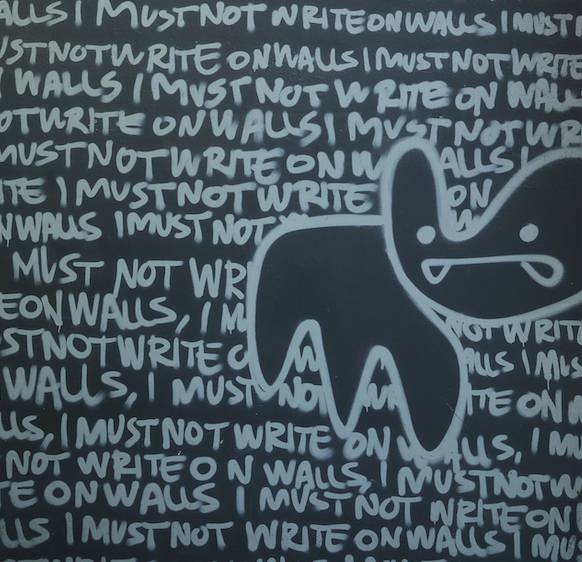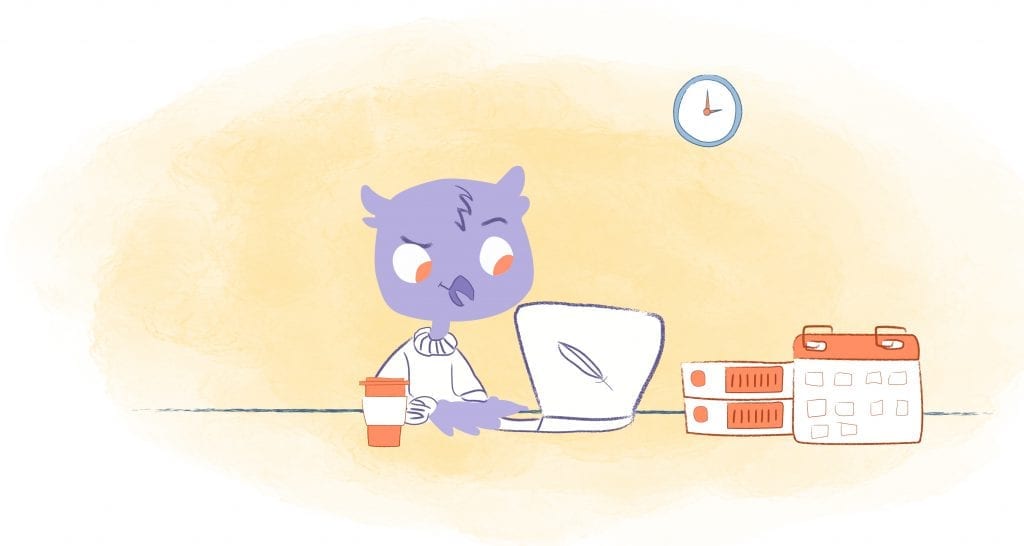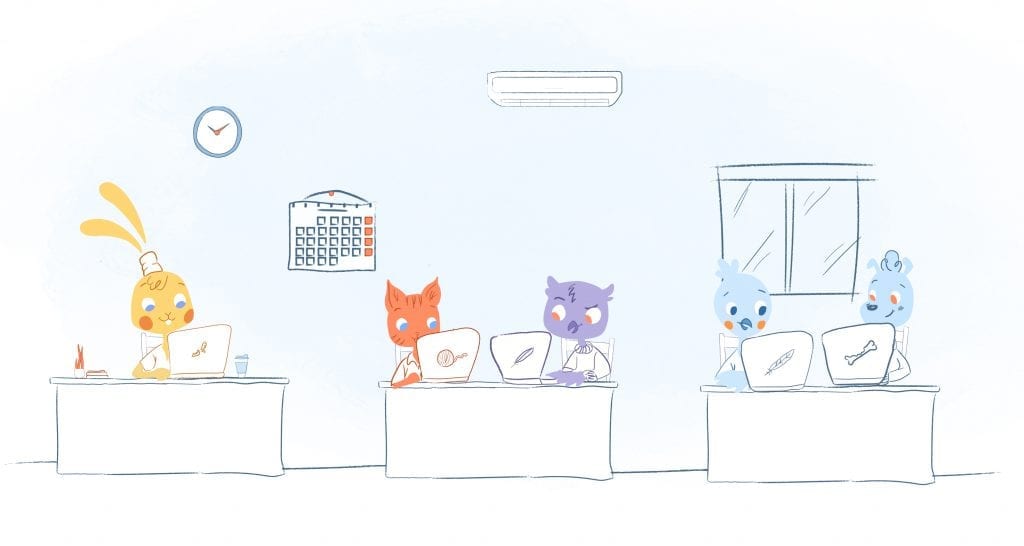

“Just when I thought I was out, they pull me back in!” — Michael Corleone
Why would I quote a line from 1990’s Godfather: Part III? It is arguably, after all, the worst film in the iconic franchise. But, for some reason, it reminded me of the phrase “cancel culture.”
Unless you’ve been completely disconnected, “cancel culture” has been a phenomenon over the last several years. It’s become so prominent that it seems all of your public figures have been canceled. It’s even made it onto the “words we’re watching” list from Merriam Webster.
But, what exactly does it mean to “get canceled?” And, where exactly does Michael Corleone fit in?
“Cancel culture refers to the popular practice of withdrawing support for (canceling) public figures and companies after they have done or said something considered objectionable or offensive,” states Dictionary.com. It “is generally discussed as being performed on social media in the form of group shaming.”
“To me, it’s ultimately an expression of agency,” Meredith Clark, a professor at the University of Virginia’s department of media studies, told The New York Times in 2018. “To a certain extent: I really do think of it like a breakup and a taking back of one’s power.”
“It’s a cultural boycott,” added Lisa Nakamura, a professor at the University of Michigan who studies the intersection of digital media and race, gender, and sexuality. “It’s an agreement not to amplify, signal boost, give money to. People talk about the attention economy — when you deprive someone of your attention, you’re depriving them of a livelihood.”
A brief history of “cancel culture.”
The exact origin of the term is unknown. However, as Merriam Webster notes, this idea “has taken hold in recent years due to conversations prompted by #MeToo and other movements that demand greater accountability from public figures. The term has been credited to black Twitter users, where it has been used as a hashtag.”
But, in a well-researched 2018 Vox article, Aja Romano reports that “cancel culture arose within black culture and appears to channel black empowerment movements as far back as the civil rights boycotts of the 1950s and ’60s.” Romano also writes that “cancel culture” may have been influenced by calling people out “with online roots in early 2010s Tumblr fandom callout blogs, like Your Fave is Problematic.”
Regardless, this is a relatively new concept. While public figures were still getting “canceled” in 2020, it has become a divisive and popular talking point. Mainly steaming from the 2020 Presidential Election and events that transpired on January 6, 2021.
Following both of these events, the concept has skyrocketed. Politicians have said that this is the “most dangerous thing happening in the country today.” Publications have asked if cancel culture has gone too far, and proclaimed that it’s gone down the rabbit hole of absurdity.
Countless op-eds are debating the topic. Ice Cube recently released a song attacking cancel culture. Even neurosurgeons have weighed in on the topic.
And, this is where The Godfather becomes relevant. Before these events, “cancel culture” was only a concern for a select few. Now, it’s something that is coming after each and every one of us.
No matter which side of the fence you’re on, there’s one way to prevent getting canceled. Avoid it in the first place by doing the following.
1. Cancel culture isn’t real. But, words do have consequences.
Forget the hyperbole and Academy-Award nominate performances from talking heads. The reality is that there is no such thing as cancel culture. I mean, how can you literally “cancel” someone? (“Sorry, Jim can’t come to lunch because I’ve canceled him.”)
Instead, this is all understanding that your words having repercussions. If you say or do something problematic, you can expect the backlash. That could be mean boycotting your business, getting removed from Twitter, or just having people say how horrible you are online.
While there will be ramifications, most people are hardly canceled. In fact, life may go on just as it always did. For example;
- Louis C.K. has been back doing standup.
- Kevin Hart has released several stand-up specials and has several movies in post-production.
- Woody Allen directed an A-List cast in 2019’s “A Rainy Day in New York.”
- Kanye West has continued to record music.
- J.K. Rowling’s books are still being published.
- Bari Weiss has her own newsletter.
- Ellen DeGeneres is still hosting her popular daytime talk show.
- Josh Hawley is a U.S. Senator, hasn’t been banned on Twitter, and is frequently a guest on Fox News.
- Mike Lindell remains the CEO of MyPillow and is also constantly being interviewed on Newsmax.
- Marjorie Taylor Greene might have lost her committee seat. But, she remains a U.S. Representative and is still active on social media.
You may be able to think of a few more references of the cancel culture in the last few weeks — with the US Capitol incident and ensuing trial. Take a look. Sure. These people might have experienced some setbacks and inconveniences. But, I would hardly say that they have been canceled. For the most part, they still have a career and some sort of platform to voice their opinions.
What about the average person?
You know, someone without power and influence? Well, it’s usually not their first rodeo.
What I mean by that is they’ve made mistakes before. It could be unintentional or on purpose. Regardless, you aren’t going to receive flack for your first offense.
For instance, maybe you slipped and made an offensive remark when talking to a co-worker. They inform you that what you said wasn’t appropriate. You learn and grow from the experience.
But, if you keep using this offensive word, it shows that you don’t care. And, that’s when you’ll be called out.
Also, in some cases, you may actually be breaking the law. If you do something illegal, like making threats or false claims, don’t act surprised when you get in trouble with the law — or even your employer, clients, etc.
Overall though, most of these are extreme cases. Most of us aren’t going to get “canceled.” And, to be frank, if so, it probably was deserved.
2. Think twice before you speak.
Here’s something that we can all learn from Morgan Wallen — and his sister. Just don’t say it. Don’t double-down and try to justify it — the same goes with anything that could be considered racist, sexist, homophobic, transphobic, antisemitic, or Islamophobic.
And, don’t blame others.
Again, this is all about being held accountable. You know perfectly well what’s going to offend others. And, if you do, that’s all on you.
Unless your brand is that of a provocateur, just steer way clear of controversy. That’s it. Easy, peasy.
As Napolean Hill said, “Think twice before you speak because your words and influence will plant the seed of either success or failure in the mind of another.”
The same goes for social media. Lifehacker has a handy infographic you can use if you’re uncertain about this. As a general rule of thumb, don’t share that contains expletives, nudity, gossip, or illegal activities. And, definitely stay off social media if you’ve had one too many adult beverages.
One more thing. Be cautious about weighing in on social or political issues since they are polarizing. And, be mindful of your humor as it’s difficult to convey sarcasm or irony without verbal cues.
In short, always think before your post.
3. Nothing truly disappears from the internet.
So, you share something online and later regretted it. Let’s say that you tweeted out something about your boss or ex. After coming to your senses, you delete the tweet.
For most of us, that might suffice. However, it depends on how quickly you act. Leaving that tweet up for an extended period of time gives others more time to see what you wrote — and respond accordingly.
Even if you acted swiftly, also remember that nothing ever gets deleted from the internet. I highly doubt that people are taking screenshots of your past activity or even fishing for controversial content.
But, why take that chance? Just don’t share anything that will come back and haunt you.
4. Read the small print.
You may disagree with it. But, included in those lengthy user agreements are website terms and privacy policies. If you violate these, you may receive a temporary suspension, demonetization, or a permanent ban.
But, who really has the time to comb through these with a fine comb? Thankfully, there’s a shortcut.
Inspired by the internet acronym TL;DR, ToS; DR is short for “Terms of Service; didn’t read. It’s a browser extension that rates and labels “website terms and privacy policies, from very good Class A to very bad Class E.” It also summarizes the key points of services so that you can clearly and quickly know what you’re getting into before clicking on “agree.”
5. Reduce your screen time.
The easiest way to protect yourself from “cancel culture?” Reduce your screen time.
You don’t necessarily have to quit social platforms. After all, they’re useful in building your brand and keeping in touch with others. But, there is no reason why you should be spending 145 minutes per day using social media — the exception is if it’s your job.
To me, this is straightforward. The less time you’re on social media, the fewer opportunities you have to get into trouble.
Rather than share every moment, opinion, meme, or whatever, do something else. Go for a walk without your phone. Pursue a hobby, read, write, and bolster your real-world relationships.
If the pull of social media still tempts you, delete the apps from your phone — or at least remove them from your home screen. You could use tools that block these apps at certain times. Or, you could even consider going back to a flip phone.
Another idea that I’m a fan of is establishing tech-free zones. I ban my phone from places like my work desk, bedroom, and dining room table. I just leave my phone in another room.
But, what about FOMO? Well, you can make the most out of batching. Here you would limit your social media usage to two or three times a day.
There are social media managers that allow you to schedule and monitor your social channels. And, if you’re a business owner, some chatbots can handle customer service inquiries.
What if others are trying to “cancel” you?
Let’s be real here. You aren’t going to get called-out, boycotted, or lose contracts for no reason. If you are, it’s probably due to a misunderstanding or you because you deserve it.
That sounds harsh. But, every act has a corresponding reaction. If you make a racist or sexist comment in public or on social media, then there’s a price to pay for that.
But, if there’s been a mix-up, listen to why others were confused or hurt by your words or actions. That’s one of the best ways to become more empathetic and grow as a person.
Also, there might be times when someone does seem to come over you. It could be an angry customer or former employee. Negative feedback can be used to identify your weaknesses or build trust.
In some situations, though, it’s best to ignore these individuals and move on. If it gets too bad, you can report or potentially take legal action. And, if you’re a leader, implement a social media policy and remind your team about online etiquette.
With all that being said, I just want you to know that there’s no need to lose sleep over “cancel culture.” Just use common sense and don’t be a destructive, unpleasant, and vile person. And, maybe, just maybe, spend less glued to your screen.
Image Credit: laker; pexels











Deanna Ritchie
Editor-in-Chief at Calendar. Former Editor-in-Chief and writer at Startup Grind. Freelance editor at Entrepreneur.com. Deanna loves to help build startups, and guide them to discover the business value of their online content and social media marketing.